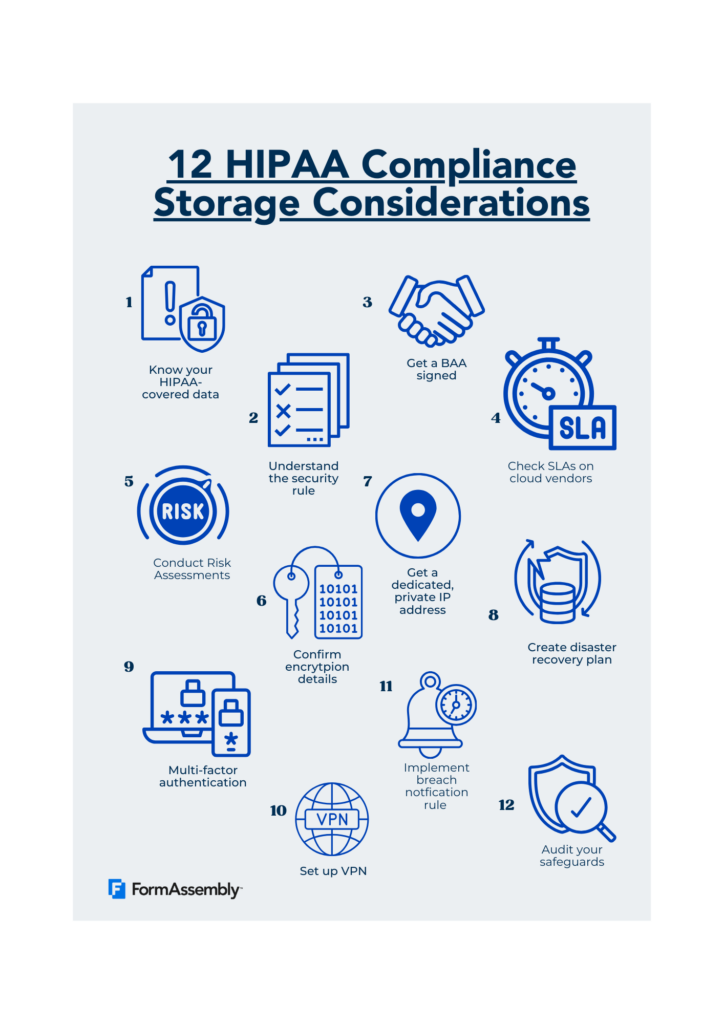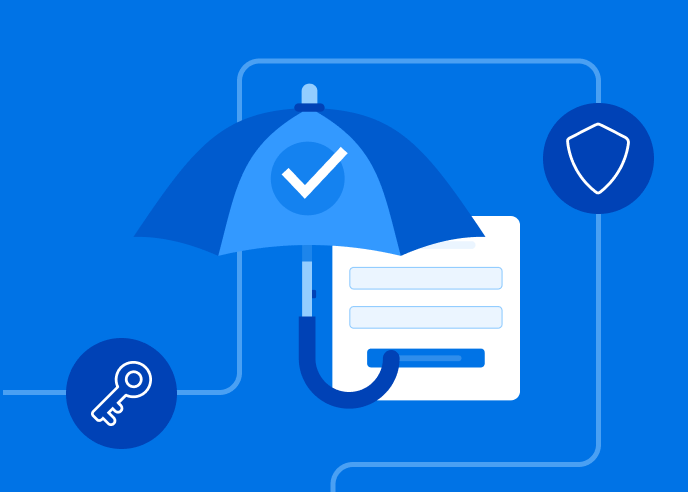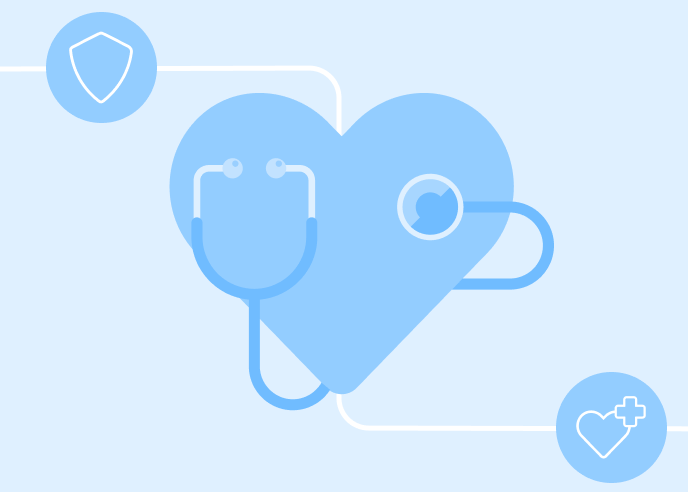Think HIPAA only applies to hospitals? Think again.
If your business touches Protected Health Information (PHI)—whether through cloud storage, software services, or insurance claims—you could be legally required to comply. Failing to do so can lead to penalties ranging from $141 to $2,134,831 per violation (not to mention the cost of reputational damage). This guide breaks down HIPAA compliance for non-medical businesses, outlining the rules, risks, and steps to stay compliant.
Who Needs to Be HIPAA-Compliant?
Let’s be clear: HIPAA compliance isn’t just for hospitals and doctor’s offices. If your organization interacts with Protected Health Information (PHI) in any way, you may be legally required to comply. Here’s how different industries find themselves under HIPAA’s umbrella:
Nonprofits
Nonprofits providing healthcare-related services, such as free clinics, mental health support programs, or substance abuse treatment centers, are often working with PHI and must ensure the privacy of patient data, including diagnoses, treatment plans, and prescriptions. If these nonprofits store or share patient information, they are required to comply with HIPAA standards for data storage and file sharing.
Higher Education
Higher Education Institutions with student health centers, counseling services, or research departments may handle PHI as well. Universities conducting health studies or clinical trials on campus must protect participant health records, such as test results or medical histories. Student health centers also deal with PHI when handling medical records for students, including vaccination histories, treatment for illnesses, and mental health counseling information.
Software Providers
Software Providers offering cloud storage, CRM systems, or workflow automation tools to healthcare providers or insurers are required to meet HIPAA standards. For instance, a software company that develops an electronic health records (EHR) platform for hospitals must ensure its system complies with HIPAA by providing encryption and secure data access controls. Any business that handles or stores patient data, even indirectly, must meet these stringent requirements.
Insurance Companies
Insurance Companies handling patient data are also subject to HIPAA regulations. Health insurance companies, for example, store sensitive information such as medical histories, treatments, and claims data. These businesses must ensure that patient data is accessed only by authorized personnel and is protected against breaches, both digitally and physically.
HR
HR Departments in any company that processes employee health records, including health insurance details or workers’ compensation claims, need to comply with HIPAA. For example, HR departments must secure employee health records that are part of benefits programs or medical accommodations, ensuring they are stored safely and accessed only by those with permission.
Billing & Payment Processing Services
Billing and payment processing services that handle medical transactions are also required to comply with HIPAA. This includes any business processing payments or handling medical billing for healthcare services. These companies must protect patient information—such as billing details, insurance claim data, and payment histories—during every stage of the transaction process, ensuring that data is not exposed or shared inappropriately.
If your business interacts with PHI, you’re likely considered a Business Associate under HIPAA, meaning compliance is a must.

Key HIPAA Rules & Requirements
There are three core regulations every business handling PHI needs to know. Let’s break them down:
1. HIPAA Privacy Rule
Think of the Privacy Rule as the “who, what, and how” of PHI access. It defines who can view patient data, what rights individuals have over their information, and how organizations must protect it. Key aspects include:
- Only authorized personnel should have access to PHI.
- Patients have the right to access and request corrections to their PHI.
- Any sharing of PHI must be secured and properly documented.
2. HIPAA Security Rule
While the Privacy Rule sets the foundation, the Security Rule ensures PHI remains protected from breaches, cyber threats, and internal mishandling. It requires businesses to establish three layers of safeguards:
- Administrative safeguards: Regular employee training, risk assessments, and strong internal policies.
- Physical safeguards: Secure workstations, restricted access to servers, and proper disposal of records.
- Technical safeguards: Encryption, role-based access controls, and secure data transmission.
3. HIPAA Breach Notification Rule
Despite best efforts, breaches can still happen. That’s where the Breach Notification Rule comes in—it ensures businesses act quickly and transparently when PHI is compromised. If a breach occurs, organizations must:
- Notify affected individuals as soon as possible.
- Report the incident to the Department of Health and Human Services (HHS).
- Implement corrective measures to prevent future breaches.
HIPAA compliance might seem complex, but understanding these three rules is the first step in protecting both your business and the sensitive data you handle.
HIPAA Compliance: Key Areas to Get Right
Staying HIPAA compliant means covering these critical areas while steering clear of common missteps. Here’s how to stay on track:
✅ Risk Assessments – Regularly identify vulnerabilities to prevent compliance gaps. Skipping and going lax on risk assessments leads to unnoticed, new security risks.
✅ Business Associate Agreements (BAAs) – Secure agreements with healthcare clients to ensure legal protection.
✅ Employee Training – Educate staff on HIPAA policies and PHI handling best practices.
✅ Robust Security Measures – Use encryption, access controls, and secure storage for PHI.
✅ Incident Response Plan – Be prepared to detect, report, and mitigate security breaches.
✅ Audit Logs & Compliance Documentation – Maintain detailed records to track security efforts. =Poor documentation can lead to compliance gaps and regulatory scrutiny that result in severe fines.
So far in 2025, HIPAA has issued 6 fines that have equaled $3,557,750.
By focusing on these areas—and avoiding the pitfalls—you can strengthen your HIPAA compliance strategy, reduce risk, and avoid penalties that could cost you millions.
HIPAA Compliance for IT & Digital Platforms
For businesses handling digital data, compliance extends to:
| Compliance Area | Action Steps |
|---|---|
| Cloud Storage | A cloud provider must be willing to sign a BAA with you, which legally binds them to HIPAA compliance regarding your protected information. |
| Data Encryption for emails and files | HIPAA-compliant encryption for emails requires TLS 1.2+ for in-transit protection and end-to-end encryption (such as PGP or S/MIME) to secure PHI. For files, PHI must be encrypted at rest using AES-256 and during transmission via SSL/TLS or secure file transfer methods like SFTP. Note: Free versions of Gmail and Outlook do not meet HIPAA standards |
| Access Controls | To restrict access to PHI based on employee roles, implement role-based access controls (RBAC), ensuring users can only access the minimum necessary data for their job. Use unique user authentication, access logs, and permission settings to enforce security and monitor PHI access. |
| Security Updates | Regularly update security protocols by applying software patches, updating firewalls, and enhancing encryption standards to meet HIPAA requirements and protect PHI from cyber threats. |
Tools & Resources for HIPAA Compliance
To simplify compliance, consider:
- HIPAA compliance management software for automated tracking.
- Secure cloud storage solutions that meet encryption standards.
- Training programs to educate employees on compliance best practices.
- FormAssembly for secure, HIPAA-compliant data collection.
📥 Download our HIPAA Compliance Checklist [PDF] for easy reference !
Conclusion & Next Steps
HIPAA compliance isn’t optional for businesses handling PHI—it’s a legal requirement that protects both your customers and your company. By taking proactive steps such as conducting risk assessments, training employees, and securing digital communications, you can avoid costly fines and build trust with your clients.
🔎 Unsure if your data collection processes are truly HIPAA-compliant? Schedule a consultation with our Sales team today to identify gaps, strengthen security, and simplify compliance.


